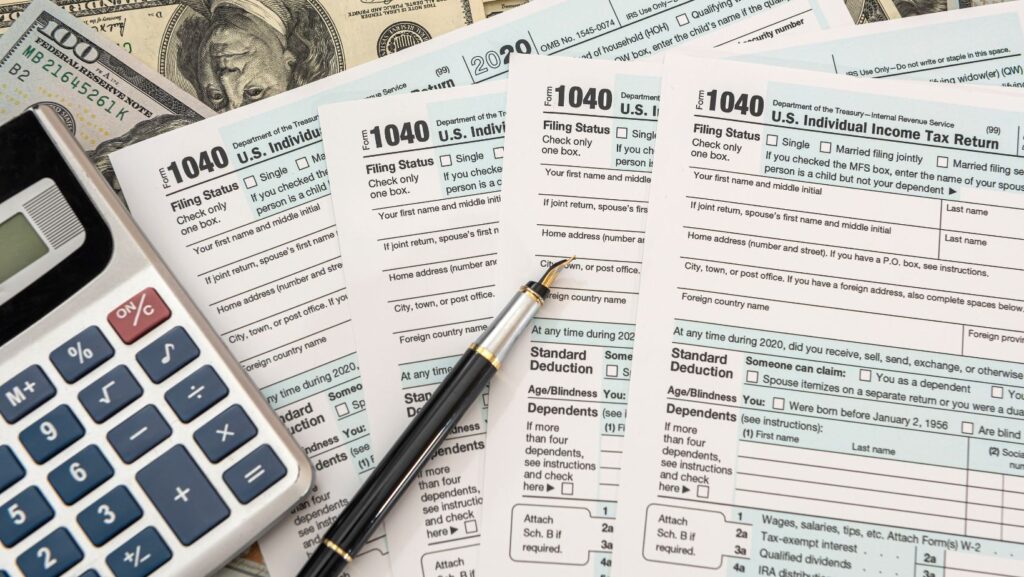There are particular difficulties and factors to take into account when filing taxes in 2025 as an American Expat residing overseas. To guarantee compliance and prevent needless fines, it is crucial to comprehend your responsibilities, make use of the resources at your disposal, and get expert counsel. This comprehensive guide will assist you in successfully navigating the procedure.
Tax Filing Obligations for American Expats
The U.S. tax system is based on citizenship, not residency. This means U.S. citizens must report their worldwide income annually, even if they live abroad.
Who Needs to File?
If your income exceeds the following thresholds in 2025, filing is mandatory:
- Single under 65: $13,850
- Married filing jointly under 65: $27,700
- Self-employed individuals: $400
These thresholds include income from all sources, such as wages, rental income, and investments.
Common Tax Forms for Expats
- Form 1040: The standard U.S. tax form for reporting income.
- Form 2555: To claim the Foreign Earned Income Exclusion (FEIE).
- Form 1116: For the Foreign Tax Credit (FTC), which offsets foreign taxes paid.
- FBAR (FinCEN Form 114): Mandatory if you hold foreign accounts exceeding $10,000 in total.
- Form 8938: For reporting specified foreign financial assets under FATCA regulations.
Key Deadlines for 2025
American expats receive an automatic two-month filing extension, making the deadline June 15, 2025. However, taxes owed must still be paid by April 15, 2025, to avoid penalties and interest.
If additional time is needed, expats can request an extension until October 15 by filing Form 4868.
Managing Double Taxation
Expats often worry about paying taxes twice: once in the U.S. and again in their country of residence. The IRS provides mechanisms to reduce or eliminate double taxation:
- Foreign Earned Income Exclusion (FEIE): Excludes up to $120,000 of earned income in 2025.
- Foreign Tax Credit (FTC): Offers a dollar-for-dollar reduction for taxes paid to another country.

It’s crucial to evaluate which option works best for your situation. Often, using a combination of FEIE and FTC can optimize your tax outcomes.
State Taxes for Expats
Some states, such as California and Virginia, may consider you a resident for tax purposes even after you move abroad. This can lead to additional tax obligations. Understanding state-specific rules is critical to avoiding surprises.
Streamlined Tax Amnesty Program for Late Filers
For expats who have fallen behind on their U.S. tax obligations, the Streamlined Tax Amnesty Program offers a way to catch up without penalties.
Eligibility Criteria
- Non-willful failure to file.
- Reside outside the U.S. for at least 330 days in one of the last three years.
Participants must file the last three years of tax returns and the last six years of FBARs. This program provides a valuable opportunity to become compliant while minimizing penalties.
Tax Software vs. Professionals: Which Is Best?
Expats have two main options when filing taxes: self-prep software or professional assistance.
Advantages of Tax Software
Tax self-prep software like TopTax, ExpatFile, and TurboTax is designed to simplify the filing process. Features include:
- Automated calculations for FEIE and FTC.
- Guidance on FATCA and FBAR compliance.
- Cost-effectiveness for straightforward returns.
When to Consult a Professional
If your tax situation is complex, involving dual residency, significant investments, or business ownership abroad, hiring a professional is recommended.

Expat US Tax professionals ensure compliance with both U.S. and foreign regulations and can provide tailored strategies for reducing liabilities.
Tips for a Smooth Filing Process in 2025
- Organize Your Documents
Gather records of all income, foreign bank accounts, and taxes paid abroad well before the deadline. - Stay Updated on Tax Changes
Tax laws can change annually. Monitor updates to FEIE limits, tax brackets, and reporting requirements. - Leverage Deductions and Credits
Understand and maximize the use of FEIE, FTC, and other deductions to reduce your tax burden. - File on Time
Late filings can result in penalties and interest, so adhere to deadlines and request extensions if needed.
Final Thoughts
Tax filing for American expats in 2025 doesn’t have to be overwhelming. By understanding your obligations, staying organized, and leveraging tools like self-prep software or professional advice, you can ensure compliance and minimize stress.


